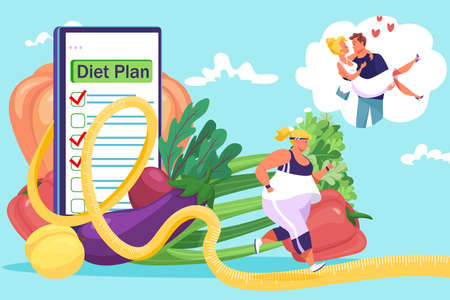Balanced Diet Essentials for Pregnant Women in the UK
As a first-time mum-to-be living in the UK, following a balanced diet is one of the best things you can do for yourself and your growing baby. According to NHS guidelines, making healthy food choices ensures both you and your little one receive all the essential nutrients needed during pregnancy. Key nutrients include folic acid, iron, calcium, vitamin D, and omega-3 fatty acids. You’ll find folic acid in leafy greens like spinach or kale—staples in many British kitchens—as well as fortified breakfast cereals and wholemeal bread. Iron is vital for preventing anaemia and can be found in red meat, lentils, and dark green vegetables. Dairy products such as milk, cheese, and yoghurt are great sources of calcium; just remember to choose pasteurised options to stay safe. Vitamin D is also crucial, especially given the UK’s famously cloudy weather—so consider oily fish like salmon or mackerel, or opt for NHS-recommended supplements if needed. Traditional British ingredients like oats, root vegetables (think carrots and parsnips), and locally farmed eggs can easily be worked into meals for added nourishment. Eating little and often helps with nausea, so try snacks like wholegrain toast with Marmite (which also contains B vitamins) or a banana with peanut butter. By embracing these local foods and sticking to NHS advice, you’ll feel confident that you’re providing the best start for your baby.
Foods to Avoid and UK-Specific Considerations
When I first became pregnant, navigating what foods I could and couldn’t eat in the UK felt overwhelming. There’s a lot of advice online, but local guidance can be quite specific. The NHS provides clear recommendations on food safety for expectant mums, and it’s important to stay updated as guidelines may change.
Common Foods to Avoid During Pregnancy
The table below summarises some key foods to avoid based on current UK advice:
| Food | Reason to Avoid |
|---|---|
| Soft Cheeses (e.g., Brie, Camembert) | May contain listeria, which can harm your baby |
| Deli Meats (unless thoroughly cooked) | Risk of listeria and other bacteria |
| Raw or Undercooked Eggs | Risk of salmonella – stick to Lion-stamped eggs if you want them runny |
| Certain Fish (e.g., shark, swordfish, marlin) | High mercury content; can affect your baby’s developing nervous system |
| Unpasteurised Milk or Dairy Products | Risk of harmful bacteria such as listeria and E. coli |
Updated UK Food Safety Advice
The NHS regularly updates its pregnancy food safety guidelines. For example, soft blue cheeses and mould-ripened cheeses are only safe if they are cooked until steaming hot. Smoked fish like smoked salmon should be avoided unless cooked, due to concerns about listeria. Also, it’s advised not to eat more than two portions of oily fish a week due to pollutants. Always check labels for pasteurisation and look out for the Red Tractor or Lion marks for extra assurance.
Cultural Practices and Local Tips
In the UK, we love our cheese boards and deli sandwiches – both can be risky during pregnancy unless you make smart swaps. For instance, choose hard cheeses (like cheddar) over brie or camembert, and opt for freshly cooked meats instead of pre-packaged deli slices. When eating out or at family gatherings, don’t hesitate to ask how food was prepared; most people are understanding when you explain your pregnancy needs.
A Personal Note on Navigating Social Situations
I found that friends often offered me homemade treats or traditional dishes containing raw eggs or unpasteurised ingredients. Politely declining or bringing my own snack helped me stay social without risking my health or feeling left out. Remember: prioritising your wellbeing is absolutely fine – you’re doing it for both you and your little one!

3. Safe Exercise Recommendations for Expecting Mums
Staying active during pregnancy can feel a bit daunting at first, especially if you’re a new mum-to-be and not sure what’s safe. In the UK, the NHS provides clear guidance to help us make the best choices for ourselves and our babies. Regular gentle exercise can help boost your mood, improve sleep, and even make labour a little easier. Here’s an overview of activities that are generally considered safe and enjoyable for expecting mums.
Overview of Suitable Physical Activities
Many everyday activities can count towards your recommended 150 minutes of moderate-intensity exercise per week. The key is to choose options that keep you moving but don’t put too much strain on your body. Think about walking, swimming, or joining pregnancy-specific fitness classes. These are all accessible options in most UK towns and cities.
Advice from the NHS
The NHS suggests starting with what feels comfortable—if you were active before pregnancy, you can usually continue with your usual routine, just dialling down the intensity as needed. If you’re new to exercising, gentle walks or swimming are perfect ways to ease in. Always listen to your body; stop if anything feels wrong, and don’t be afraid to ask your midwife or GP for advice tailored to you.
Walking in Local Parks
One of my favourite ways to stay active while pregnant was simply taking walks in our nearby park. It’s free, relaxing, and gives you a chance to enjoy some fresh air. Many local parks in the UK have well-maintained paths and benches for when you need a break. Walking with a friend or partner also makes it more fun and keeps you motivated.
Swimming at Leisure Centres
Swimming is highly recommended during pregnancy because it supports your weight, making it gentle on your joints and back. Most leisure centres across the UK offer dedicated “pregnancy swim” sessions where you can meet other mums-to-be and move at your own pace. The water’s buoyancy really helped me feel lighter and eased my aches as my bump grew.
Exercise Classes Designed for Pregnancy
If you like a bit more structure, look for antenatal yoga, Pilates, or aqua-natal classes at your local gym or community centre. These classes are designed specifically with pregnant women in mind—they focus on strengthening muscles needed for birth and improving posture. Plus, they’re a great way to connect with other expecting mums in your area!
4. Managing Weight and Physical Changes
Pregnancy brings about many changes to your body, and it’s perfectly normal to feel a mix of excitement and concern about how you look and feel. In the UK, there’s a big emphasis on health rather than just numbers on the scale. The NHS recommends that most women will gain between 10kg and 12.5kg (about 22–28 lbs) during pregnancy, but every pregnancy is unique. Here’s a simple table to help you understand healthy weight gain based on your pre-pregnancy BMI:
| BMI Category (Pre-pregnancy) | Recommended Weight Gain |
|---|---|
| Underweight (<18.5) | Up to 18kg (40 lbs) |
| Normal (18.5–24.9) | 11–16kg (25–35 lbs) |
| Overweight (25–29.9) | 7–11kg (15–25 lbs) |
| Obese (≥30) | 5–9kg (11–20 lbs) |
Body Positivity During Pregnancy
It’s important to remember that your body is doing something incredible—growing a whole new person! It’s easy to compare yourself to others, especially with so many images online, but every pregnancy journey is different. Embrace the changes and focus on what your body needs rather than how it looks. Give yourself credit for nourishing your baby and trust that your shape will change as it needs to.
Handling Comments from Family or Friends
If you’re living in the UK, you might find that British family or friends make comments about your bump or appearance—often in a light-hearted way, but sometimes these remarks can catch you off guard. If someone says, “Blimey, you’re looking big today!” or jokes about how you’re ‘all bump’, try not to take it personally. Most comments are meant affectionately, but if they bother you, it’s perfectly okay to set boundaries politely: “I’m focusing on staying healthy for me and the baby.” Remember, everyone has an opinion, but only you and your midwife truly know what’s best for your body.
Key Takeaways for UK Mums-to-be:
- Follow NHS guidance for healthy weight gain based on your starting BMI.
- Celebrate your changing shape—your body is amazing!
- If comments from others make you uncomfortable, respond calmly or change the subject.
- Your well-being is more important than fitting into someone else’s idea of what pregnancy should look like.
By focusing on health over appearance and keeping open communication with your care team, you can navigate these changes with confidence and self-kindness during your pregnancy journey in the UK.
5. Mental Wellbeing and Support Systems in the UK
Looking after your mental wellbeing is just as important as your physical health during pregnancy. It’s perfectly normal to feel a mix of excitement, anxiety, and even overwhelm – I certainly did as a first-time mum! Here are some practical tips and insights into the support systems available for pregnant women across the UK.
Tips for Managing Stress and Anxiety
Pregnancy can bring about a lot of changes, and sometimes it’s hard not to worry. If you’re feeling stressed or anxious, try gentle activities like prenatal yoga or mindfulness meditation – there are lots of free online resources tailored for beginners in the UK. Even something as simple as going for a walk in your local park or chatting with a friend over a cuppa can work wonders. Remember, it’s okay to ask for help when you need it; looking after your mind is an essential part of self-care during this special time.
Accessing Local Resources
The UK offers a range of support systems specifically designed for pregnant women. Your midwife should be your first point of contact for any worries or questions – they are incredibly knowledgeable and approachable (I found mine to be such a reassuring presence). The NHS also provides a wealth of information on their website, from mental health support to antenatal classes.
If you’re looking for more community-based support, the National Childbirth Trust (NCT) runs courses and local groups where you can meet other expectant mums. These sessions are brilliant for building confidence and learning what to expect, especially if you’re navigating pregnancy for the first time.
Building Your Support Network
No one should go through pregnancy alone. In my experience, reaching out to other mums-to-be made all the difference. Joining social media groups or local WhatsApp chats can help you connect with others going through similar experiences. Don’t hesitate to involve family members and friends, too – sometimes just having someone listen can make things feel much more manageable.
Remember: in the UK, there’s no shame in admitting you need support. Whether it’s through healthcare professionals, trusted friends, or local parenting networks, help is always available. Building these connections will not only benefit your mental wellbeing but also give your baby the best possible start in life.
6. Everyday Lifestyle Tips for British Pregnant Women
Sleep: Prioritising Rest in the UK
Getting enough rest is crucial during pregnancy, but with work commitments and family life, it can be challenging. I found that creating a calming bedtime routine – such as having a warm bath or reading a book – really helped me unwind. If you’re struggling to sleep due to discomfort, try using extra pillows for support or investing in a maternity pillow, which is quite popular among mums-to-be here in the UK. Don’t hesitate to take daytime naps if you need them; listen to your body and rest when possible.
Commuting: Navigating Public Transport
Many pregnant women in Britain rely on public transport. Always carry a “Baby on Board” badge (which you can request from TfL or local councils) to encourage others to offer you a seat. During rush hours, try to travel at quieter times if your schedule allows. When driving, keep snacks and water handy for longer journeys, and remember that taking regular breaks is key if you feel tired.
Weather Preparedness: The British Way
The unpredictable British weather means being prepared for anything! Keep an umbrella or waterproof jacket in your bag, and dress in layers so you can adjust to sudden temperature changes. In my own experience, comfortable shoes are essential – you never know when it might rain! Also, use sunscreen during rare sunny spells; even on cloudy days, UV rays can still affect sensitive skin during pregnancy.
Incorporating UK Parenting Traditions
British parenting traditions often focus on community and routine. Antenatal classes are widely attended and offer a great way to meet other local mums-to-be, share advice, and feel supported. Many families here enjoy daily walks in parks or green spaces – it’s a gentle way to stay active and bond with your baby bump. Embracing teatime (even if just with herbal tea!) can give you a moment of relaxation in the afternoon, which I found both comforting and grounding during my own pregnancy journey.
Final Thoughts
Adapting your everyday lifestyle as an expectant mum in the UK doesn’t have to be overwhelming. By focusing on good sleep habits, safe commuting, weather readiness, and embracing local traditions, you’ll find small ways to make each day more comfortable and meaningful as you prepare for your new arrival.

